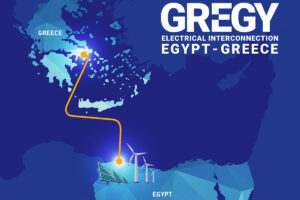A new chapter in global diplomacy may be unfolding after a rare and lengthy phone conversation between U.S. President Donald Trump and Russian President Vladimir Putin, which lasted more than two and a half hours on Wednesday. The exchange, initiated by Putin, has opened the door to a possible historic summit in Budapest — aimed at exploring ways to end the war that has ravaged Ukraine since 2022.
According to both the White House and the Kremlin, the conversation was “productive,” setting the stage for follow-up meetings between senior officials from both countries next week. Trump confirmed that Secretary of State Marco Rubio will lead the American delegation, while Putin will send his top diplomatic aides.
“President Putin and I agreed to hold a high-level advisors’ meeting next week. We will later meet in person in Budapest, Hungary, to see if we can bring an end to this tragic war,” Trump announced on his Truth Social platform shortly after the call.
Why Putin called Trump now
Kremlin sources have confirmed that the initiative came directly from Putin, signaling Moscow’s attempt to re-establish communication channels with Washington after months of silence. The Russian president reportedly warned Trump that supplying Ukraine with Tomahawk long-range missiles would severely harm U.S.-Russia relations and “undermine any prospects for peace.”
The timing was no coincidence. Just days earlier, Trump had hinted that he was considering sending Tomahawk missiles to Ukraine if Moscow refused to cooperate on peace efforts. “If this war doesn’t move toward settlement, we’ll send them Tomahawks,” Trump said, before adding that “Russia doesn’t need that.”
Analysts believe Putin’s call was a preventive diplomatic maneuver — an attempt to avert the potential escalation that such a weapons transfer could provoke.
From Gaza to Kyiv: Trump’s expanding diplomatic ambitions
The phone call came as Trump sought to leverage his recent diplomatic success in brokering a ceasefire in Gaza. With his international standing strengthened, Trump is now determined to extend his peacemaking image to Eastern Europe — a region central to his foreign policy agenda and domestic political message ahead of the 2026 elections.
During their discussion, Putin congratulated Trump for his “great achievement of peace in the Middle East,” reportedly calling it “a dream of centuries.” Trump wrote that the Russian leader also thanked Melania Trump for her humanitarian work with children, and that they discussed post-war trade prospects between their nations.
The Budapest summit and Hungary’s role
According to diplomatic insiders, Budapest was chosen as a potential meeting site due to Prime Minister Viktor Orbán’s neutral stance toward Moscow and his close relationship with Trump. Orbán welcomed the news on social media, calling it “a great day for the peace-loving people of the world.”
The White House confirmed that Trump intends to brief Ukrainian President Volodymyr Zelensky on the call’s contents during their scheduled meeting on Friday. White House spokeswoman Caroline Levitt added that “progress was made” and that a Putin–Zelensky meeting might even become possible “if the right conditions emerge.”
What comes next: hopes and doubts
Experts caution that the Trump–Putin dialogue, while symbolically significant, may not lead to an immediate breakthrough. But after months of frozen relations, the reopening of direct communication channels between Washington and Moscow represents a rare opportunity to reset the diplomatic stage.
Optimists see in the Budapest summit a potential turning point, possibly leading to a ceasefire or humanitarian corridors in Ukraine. Skeptics, however, warn that Russia is unlikely to make substantial concessions and that any failed summit could weaken Trump’s credibility as a self-proclaimed “peacemaker.”
As the world’s attention shifts once again from Gaza to Kyiv, all eyes will be on Budapest — where the fate of yet another fragile peace may soon be decided.












